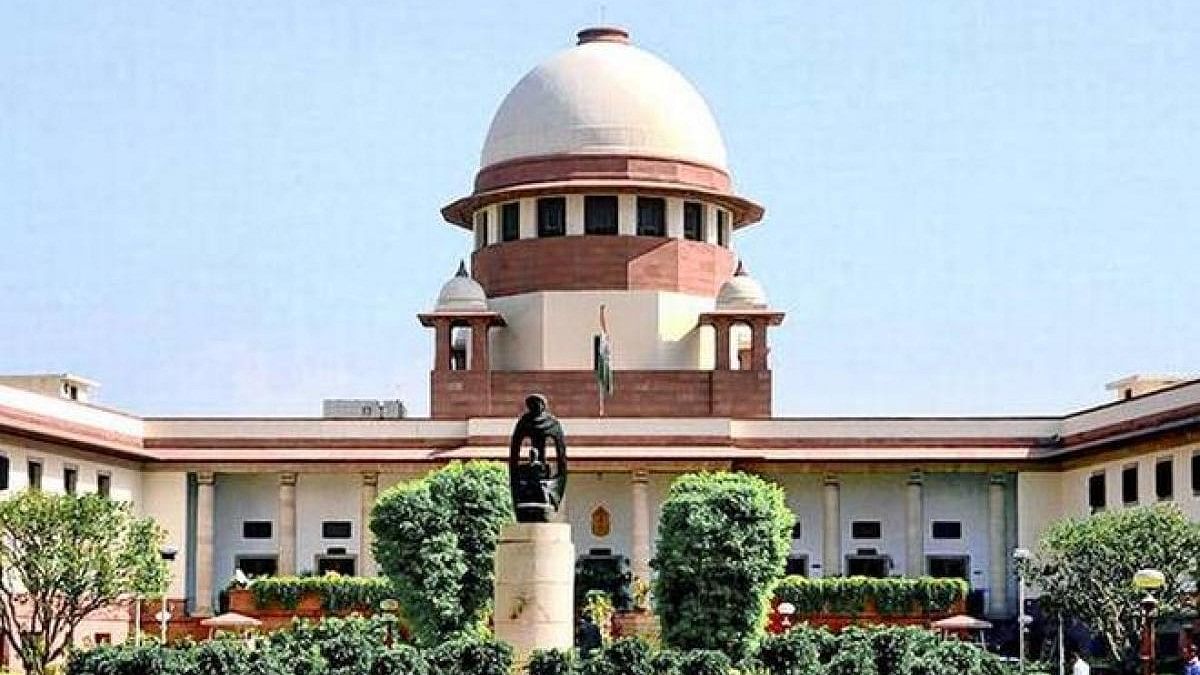
The Supreme Court of India
Credit: PTI Photo
New Delhi: The Supreme Court on Tuesday declined to restrain the Centre from granting citizenship to non Muslims migrants from Pakistan, Bangladesh and Afghanistan under the Citizenship Amendment Act and issued notice to the Centre to a plea seeking a stay on the rules notified on March 11, 2024
"We are not expressing any prima facie view," a bench of Chief Justice of India D Y Chandrachud and Justices J B Pardiwala and Manoj Misra said.
The court asked the Centre to file its response within three weeks to the applications for stay on the rules. It posted the matter for hearing on April 9.
The bench declined to consider plea by the applicants led by a number of counsel to seek a statement from Solicitor General Tushar Mehta that they would not grant citizenships till the next date of hearing.
"I am not going to make any statement," Mehta said.
He sought four weeks time to file a response saying there are 237 petitions and over 20 interlocutory applications for stay.
On repeated plea by the counsel for the petitioners for stay, the bench said infrastructure for grant of citizenship is not yet in place.
The bench said it was giving the Union government time to file reply.
The court also decided to consider the matters arising out of Assam, where an exercise for National Register for Citizens has taken place.
Senior advocates Kapil Sibal, Indira Jaising and Vijay Hansaria for the petitioners asked the court to seek a statement from Mehta that no citizenship would be granted in the meantime as once citizenship is granted, the whole process would become irreversible and the matter would become infructuous.
Mehta said under the rules, there are three tiers for processing the applications for citizenships. He also asserted none of the petitioners would be prejudiced if any citizenship is granted.
Advocate Nizamuddin Pasha, for a party submitted as many as 19 lakh people were kept out of NRC exercise undertaken in Assam and now, except Muslims, all those can file an application for citizenship, which can be processed.
Sibal and Jaising said earlier when the court issued notice in the matter on January 22, 2020, it did not consider the question of stay as no rules were notified till then.
"Notifications have been issued on March 11 after four years. If somebody gets citizenship, it would be irreversible, you can't take it back, it would become infructuous. There was no question of rejecting a plea for stay then," Sibal said.
Jaising also submitted till the court heard the matter, there be should be stay or they will get a right to vote.
She was responding to a submission by senior advocate Ranjit Kumar on behalf of a Hindu from Balochistan, who asked he came to India before December, 2014 on being persecuted. "How does it affect anybody's right here," he asked.
"They will get a right to vote...that is how it affects," Jaising said.
Advocate Kaleeswaram Raj, also for a petitioner, cited the instance of farm laws, which were stayed by the court.
The court said since the Centre is not willing to make a statement, that is why the matter has been fixed for hearing on April 9.
Kerala's Indian Union Muslim League and others filed a plea in the Supreme Court seeking a direction to stay the implementation of Citizenship Amendment Rules, 2024.
Democratic Youth Federation of India, in a separate plea, asked the Citizenship Amendment Rules for violating Article 14 of the Constitution as it is unconstitutional, discriminatory, manifestly arbitrary, unreasonable and irrational.
The CAA proposed to give citizenship to those persons who are illegal migrants belonging to Hindu, Sikh, Buddhist, Jain, Parsi or Christian community from Afghanistan, Bangladesh or Pakistan and, who have already entered into India on or before December 31, 2014. As many as 237 petitions were filed before the court challenging validity of the CAA, 2019.
